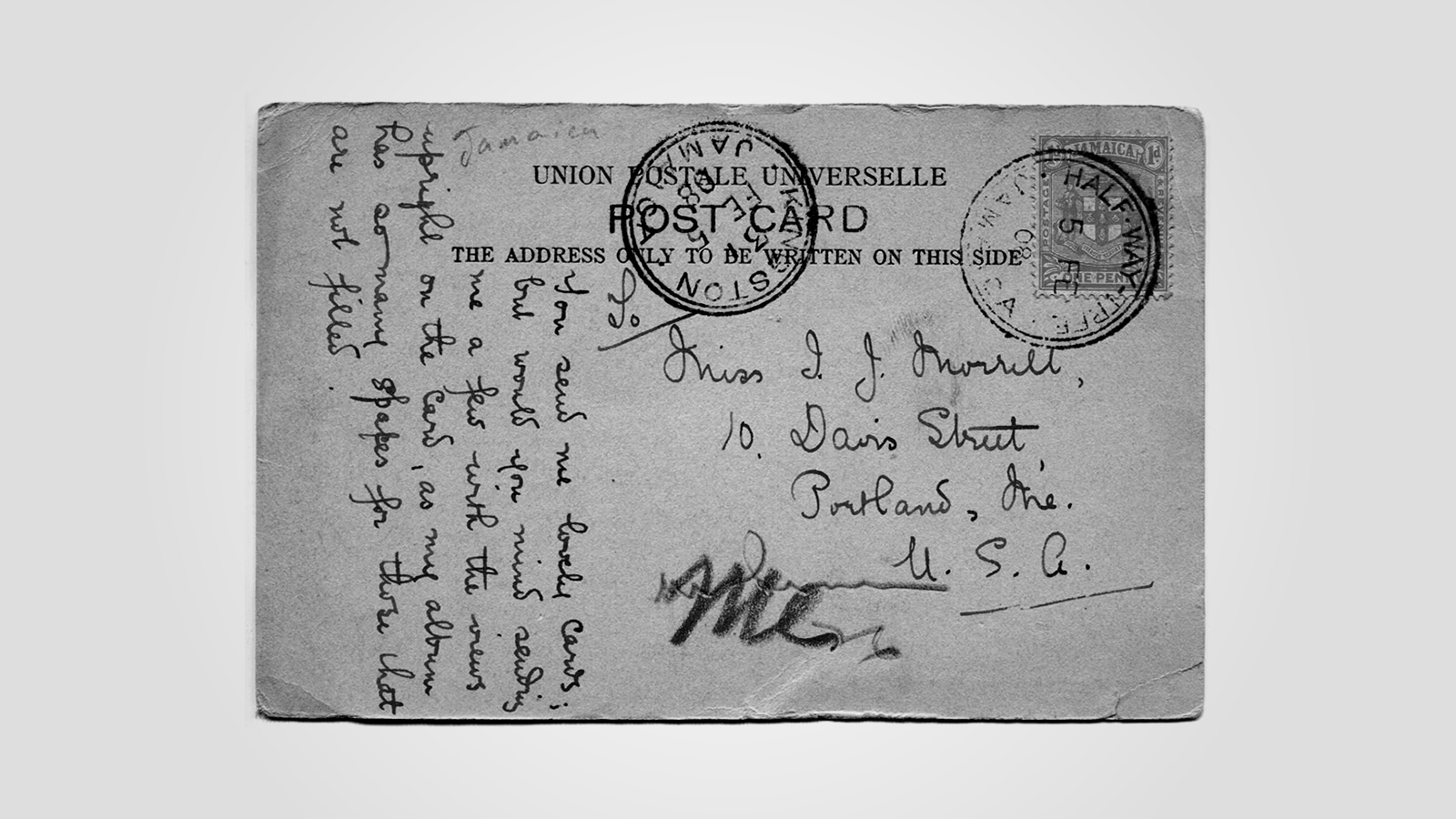Dear Reader,
The most endearing little play opened last weekend, and you have got to see it. It’s called Love Letters. It’s very simple. Two actors come out on stage and sit at desks tilted away from each other. On some nights, it’s Hilary Nicholson and Paul Issa (we’ll get to them in a bit); on other nights, Nadean Rawlins and Alwyn Scott.
The two characters are Melissa and Andy. The whole play is Melissa and Andy reading their correspondence—their love notes and greeting cards and their many, many letters from grade school through college and into adulthood—without seeing or touching each other on stage. Nobody gets up. Nobody falls over a couch. Neither Oliver Samuels nor Shebada springs from the wings, two scenes in, to play the fool.
To tell you it is good, or that you should grab all your friends, pile them into an SUV, and cram them into the hard, fold-down seats at the Philip Sherlock Centre for the Creative Arts still doesn’t do Love Letters justice. It is not good. It is great theatre. Extraordinary theatre. The closest thing to proof of its greatness is that it was nominated for a Pulitzer Prize (for Drama) in 1990. The real proof, of course, is when you laugh and then stop laughing, cry and then stop crying, wishing for it to go on and to end at the same time.
The epistolary form is fully utilized—the mediation of the page allows the characters to hide their affection, or their disappointment, or to just plain hide. When Melissa has an unpleasant summer with her father, she stops writing. Her void hurts Andy more than her words. Similarly, when Andy disappears after the Navy sends him to Japan, Melissa begs him to speak to her. The American playwright, A R Gurney, understands that dialogue interrupts silence, not vice versa. The dialogue in Love Letters is sometimes staccato, as the two friends fire short messages back and forth, and sometimes operatic, with Andy penning pages upon pages for his confidante.
Since the characters say so much about themselves and each other, and since the words do not have to be memorized, the actors could have succumbed to laziness, phoning in easy performances. Laziness aside, Love Letters is the kind of production that lends itself to the busy actor (like Nadean Rawlins).
But Paul Issa delivers his lines with deliberate care and an understated strength that grabs you and holds on. I am here, he seems to say, and I dare you to ignore me. You can’t, and you shouldn’t. His Andy is a textbook study in modern theatre acting: eschewing chewing the scenery, he instead experiences the play as an organic, live event—as it unfolds for us, it happens to him. Hilary Nicholson is good, and better than most would be, but never allows us to forget that she is acting, and we are watching.
Brian Heap, for some time now, has been staging excellent, acclaimed works like Love Letters—theatre that falls outside, often far outside, the Jamaican mainstream—and he should be rewarded for his efforts. You should reward him. Skip the movies next weekend, and pay for the privilege to know Love Letters.
Your friend always, The Gleaner
- Love Letters
- Written by A R Gurney
- Directed by Brian Heap
- Playing at Philip Sherlock Centre for the Creative Arts, May 8-18
